
Des émergents au défi du retour de la géopolitique: Regards croisés économiques et géopolitiques
En 2014, la décélération de la croissance mondiale a révélé l’existence de fortes disparités entre pays émergents. Tandis que les grands pays émergents sont confrontés à une baisse de leur potentiel de croissance, d’autres, plus petits, continuent à faire preuve de résilience et de dynamisme, dans des environnements parfois difficiles.
La même année, des tensions internationales ont vu le jour, conduisant à parler d’un « retour de la géopolitique », c’est-à-dire d’un retour à des politiques de puissance classique visant à contester, directement ou indirectement, l’ordre établi. L’intensité et la portée des crises et des conflits ont été très variables selon les régions.
Afin d’analyser la nature du lien existant entre ces défis de l’émergence et le « retour de la géopolitique », l’Institut français des relations internationales (Ifri) et l’OCP Policy Center ont lancé en 2014 les Ifri-OCP Policy Center Roundtables. Ces tables rondes réunissant des chercheurs et experts du secteur privé et public sur une base biannuelle s’intéressent tant aux grands pays émergents qu’à d’autres pays émergents, de plus petite taille, n’ayant pas, par définition, les mêmes objectifs.
Pour éviter toute analyse erronée des transformations en cours, ces deux notions – émergence et géopolitique – seront analysées séparément puis confrontées. Pour ce faire, les intervenants seront amenés à travailler à un double niveau en opérant une réflexion sur la nature de l’émergence. L’intérêt méthodologique réside dans le croisement des approches économique et géopolitique, afin de mieux discerner la nature des tendances et de tenter d’identifier les ruptures.
La première édition des tables rondes a vu traiter les cas de la Chine, la Russie, la Turquie et le Maroc. La deuxième table ronde de la série a porté sur les défis de l’émergence auxquels sont confrontés des pays comme le Brésil, l’Indonésie, le Nigéria et la Côte d’Ivoire.
Agenda
|
Thursday December 3rd |
|
| 09:00 – 09:30 |
Opening Thomas GOMART, Director, Ifri |
| 09:30 – 10:45 |
ETHIOPIA Chair: Speaker: |
| 10:45 – 11:00 |
Coffee Break |
| 11:00 – 12:45 |
INDIA Speakers: |
| 12:15 – 14:15 |
Lunch Break |
| 14:15 – 15:30 |
SOUTH AFRICA Chair: Speakers: |
| 15:30 – 15:45 |
Coffee Break |
| 15:45 – 17:00 |
MEXICO Chair: Speakers: |
|
Friday December 4th |
|
|
09:30 – 10:45 |
DEMOCRATIC REPUBLIC OF CONGO Chair: Speakers: |
|
10:45 – 11:00 |
Coffee Break |
| 11:00 – 12:45 |
VIETNAM Chair: Speakers: |
| 12:45 – 13:00 |
CONCLUSION |
-
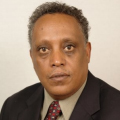
Jalal Abdellatif
Head of Capacity Development Division, UNECA, Senior Fellow, OCP Policy Center.
Jalal Abdel-Latif is currently the Governance and Human Security cluster head at the Capacity Development Division at the UNECA. JALAL has over 25 years of professional experience in the areas of corporate social responsibility, civic engagement, grant making, project design and enhancing the capacities of non-profit organizations. He began his career as researcher and capacity analyst at UCLA African studies center. He then worked as Grants manager for USA for Africa (the We Are the World project) in California. He was a co-founder and CEO OF Inter-Africa Group, regional think thank. He was appointed by the late prime minister to serve on the Ethiopian telecommunication Board of directors to assist in its modernization and expansion.
-

Alain Antil
Head of Sub-Saharan Africa Program, Ifri.
Alain Antil is a research fellow and head of the Sub-Saharan Africa Program at Ifri. He teaches at the Institut d'Etudes Politiques of Lille and at the Institut Supérieur Technique Outre-Mer (ISTOM). Alain Antil obtained his PhD in political geography at the University of Rouen. Prior to that he was associate research fellow at the Laboratoire d’Etude du Développement des Régions Arides, collaborated for the International Crisis Group and regularly contributed to the revue Sciences Humaines. He was a teacher at the University of Rouen and the University of Versailles Saint-Quentin en Yvelines.
-
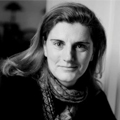
Sophie Boisseau du Rocher
Associate Fellow, Center for Asian Studies, Ifri.
Sophie Boisseau du Rocher is a senior research fellow specializing in Southeast Asian politics, geostrategic affairs and regional integration. She is the author of numerous books and articles, including Le Cambodge, la survie d’un peuple (Belin, Paris, 2011), L’Asie du Sud-Est prise au piège (Perrin, Paris, 2009) and L’ASEAN et la construction régionale en Asie du Sud-Est (L’Harmattan, Paris, 1997). She also edited the Annuaire de l’Asie orientale (Yearbook on East Asia) for the Documentation française (2006 – 2012).
Dr. Boisseau du Rocher holds a PhD in Political Science from Sciences Po, Paris (1996) and has previously taught at Sciences Po Paris, Sciences Po Le Havre (Asia campus), the Institut des hautes Etudes de la Défense nationale (IHEDN), and the Collège Inter-Armé de défense. She managed the Observatory on Southeast Asia for the Directorate of Strategic Affairs of the French Ministry of Defense from 2008-2011. She is also a research associate of the GRIP (Group for Research and Information on Peace and Security) in Brussels. -

Uri Dadush
Senior Associate, Carnegie Endowment for International Peace, Senior Fellow, OCP Policy Center.
Uri Dadush is a senior associate in Carnegie’s International Economics Program. He focuses on trends in the global economy and is currently also tracking developments in the Eurozone crisis. Dadush is interested in the impact of the rise of developing countries for financial flows, trade and migration, and the associated economic policy and governance questions. He is the co-author of four recent books and reports: Inequality in America: Facts, Trends and International Perspective (Brookings, 2012), Juggernaut: How Emerging Markets Are Reshaping Globalization (Carnegie, 2011), Currency Wars (Carnegie, 2011), and Paradigm Lost: The Euro in Crisis (Carnegie, 2010). He has published over a dozen Carnegie papers and policy briefs as well as numerous journal articles. Before joining Carnegie, Mr. Dadush’s experience was split evenly between the public and private sector, where he led a number of business-turnaround situations.
-
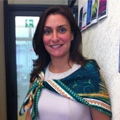
Jessica De Alba Ulloa
Mexican Council on Foreign Relations (COMEXI).
Jessica de Alba Ulloa is currently a research associate at the Anahuac Research Center on International Relations (CAIRI) of Universidad Anáhuac México Norte, and of the Centre d’Analyse des Différends et leurs Modes de Solution (CADMOS), of the Faculté Jean Monnet, Université de Paris XI (France). She is also associate of the Mexican Council on Foreign Relations (COMEXI); member of the Mexican Association of International Studies (AMEI), in charge of the Foreign Policy Committee; and member of the International Studies Association (ISA), of which she is co-editor of the Section of International Organizations of the Compendium Project; member of the Midwest Political Science Association (MPSA) and of the American Society of Mexico.
-
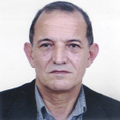
Mohamed Rachid Doukkali
Professor of Applied Ecoomics, IAV Hassan II, Senior Fellow, OCP Policy Center.
Prof. Mohammed Rachid Doukkali is a professor of applied economics at the department of social sciences at the Agriculture and Veterinary Medicine Institute Hassan II (IAV – Hassan II) of Rabat, where he teaches production economics, mathematical programming, macro-economic and sectoral policy modeling, since 1981. He is the coordinator of the Economics and Social Sciences Doctorate (PhD) program and the coordinator of the Research Unit of Economics and Social Sciences Applied to Agriculture (UR-SESAA). He is the actual president of the Moroccan Association of Agricultural Economics (AMAEco) and associate member of the General Council of Agricultural Development of Morocco. Prof. Doukkali performed several consultancies with the Ministry of Agriculture of Morocco, and national and international organizations (World Bank, FAO, UNDP) in Morocco and several Mediterranean and African countries (Syria, Mali, Burkina-Faso, Cameroon).
-
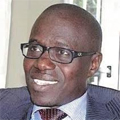
Moubarack Lo
Managing Director, Emergence Consulting, Senior Fellow, OCP Policy Center.
Moubarak Lo is President of the Emergence Institute, specializing in economic and statistical studies and strategic planning. Previously, he was deputy director in the Cabinet of Macky Sall, president of the Republic of Senegal. He also served as an economic advisor to Prime Ministers Habib Thiam, Moustapha Niasse, and Mamadou Lamine Loum, as well as the Office of the Minister of Economy and Finance. He is an expert for the UN, the African Development Bank, the World Bank, the African Union, and Economic Community of West African States. Mr. Lo has served as associate lecturer in economic policy at the National School of Administration of Senegal and the University Gaston Berger of St. Louis. He also designed the index of development Economic Emergence Composites.
-
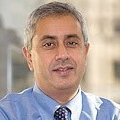
Prakash Loungani
Senior Resource Manager and Advisor, IMF, Senior Fellow, OCP Policy Center.
Prakash Loungani is Advisor in the IMF’s Research Department and Co-Chair of the IMF’s group on Jobs and Growth. He is also an adjunct Professor of Management at Vanderbilt University’s Owen School of Business, where he has taught in the Executive MBA program for the past 15 years. During 2013-14, he was on the World Economic Forum’s council on employment issues. His academic work has been published in top-tier journals and the citations to this work place him among the top 5% of economists worldwide. He was the co-author of the IMF’s background paper for the ILO-IMF conference in Oslo on tackling unemployment. More recently, he is the co-author (with Olivier Blanchard and Florence Jaumotte) of a paper on “Labor Market Policies and IMF Advice in Advanced Economies during the Great Recession” and has ongoing work on labor migration.
-
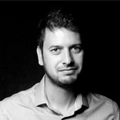
Victor Magnani
Research Fellow, Sub-Saharan Africa Program, Ifri.
Graduated in Political Science & African Studies from the University Paris 1 Panthéon-Sorbonne, Victor Magnani has had various work experiences in South Africa (French Consulate in Cape Town, South African Parliament, French Institute of South Africa) before joining the Sub-Saharan Africa Program since May 2015 as a research fellow and project officer.
-
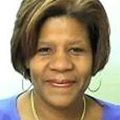
Marie Françoise Marie Nelly
Country Director for the Maghreb, World Bank.
Marie Francoise Marie-Nelly joined the World Bank in 1994 and has held a variety of positions focused on the restructuring of public enterprises, support to private sector development, regional integration, and management of the oil sector. Before assuming the position of World Bank Country Director for the Maghreb and Malta on July 1st, 2015, Ms. Marie-Nelly spent four years as Country Director for Nigeria, and previous to that held a number of posts including Country Director for the two Congo (Brazzaville and DRC) from 2008 to 2011, Director for the World Bank Group Program related to the Chad Petroleum and the Chad-Cameroon pipeline project from 2004 to 2007 and Director for the regional integration program in Africa from 2000 to 2004.
A native of Martinique, Ms. Marie-Nelly is a Certified Public Accountant, graduate of the Ecole Supérieure de Commerce de Nantes and Bowling Green University (Ohio, USA). She has also completed several management programs at Harvard University in the US. She worked for many international firms and was advisor to several governments before joining the World Bank.
-

Cyril Musila
Associate Fellow, Sub-Saharan Africa Program, Ifri.
Cyril Musila has been associate fellow for the Sub-Saharan Africa since June 2010. He holds a PhD in Social Sciences from the Ecole des Hautes Etudes en Sciences Sociales (Paris), and is a teacher in African Conflict Geopolitics and Peace Research at the Université Catholique de Paris.
-
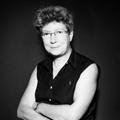
Françoise Nicolas
Researcher and Director at the Center for Asian Studies, Ifri.
Françoise Nicolas has been with Ifri since 1990. She is also an assistant Professor in international economics at the University of Paris-Est (Marne-la-Vallée), and teaches at Langues' O, Sciences Po (Paris) and Sciences Po (Lyon).
In the past she has taught at the Graduate Institute of International Studies (GIIS, Geneva – 1987-90), at the Ecole Nationale des Ponts et Chaussées (1991-95), as well as at the HEC School of Management (2000-02). She has also worked as a consultant to the Directorate for Financial, Fiscal and Enterprise Affairs of the OECD (1997-99 and 2010-11).
Françoise Nicolas holds a Ph.D in international economics (1991) and a MA in political science (1985) from the Graduate Institute of International Studies (Geneva, Switzerland). She has also studied at the University of Sussex (1980-81) and has spent some time as a visiting fellow at the Institute of Southeast Asian Studies (ISEAS) in Singapore (1999) and at the Korea Institute for International Economic Policy (KIEP) in Seoul (2004).
-

Excellency Juan Andres Ordoñez Gómez
Ambassador of Mexico to Morocco.
Juan Andres Ordoñez Gómez is Ambassador of Mexico to Morocco and concurrent with Côte d'Ivoire, Gabon, Mali and Senegal. A career diplomat since 1988, he holds a degree in Hispanic Language and Literature from the UNAM and a Doctor of Philosophy degree from the University of London. He was Consul General in Rio de Janeiro, Deputy Chief of Mission at the Embassy in France and Academic Director of the Matías Romero Institute of Diplomatic Studies, among other posts.
-
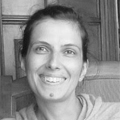
Isabelle Saint-Mézard
Researcher, Center for Asian Studies, Ifri.
Isabelle Saint-Mézard (PhD) is lecturer in Geopolitics of Asia at the French Institute of Geopolitics, University of Paris VIII.
She was formerly an analyst on South Asia at the Directorate for Strategic Affairs of the French Ministry of Defense (2006-2011). She was also a research fellow on the China-India Project at the Centre of Asian Studies/Institute of Humanities, University of Hong Kong (2003-2006). She holds a Ph.D. in international relations from the Institut d'Etudes Politiques de Paris.Her research interests are mostly about South Asian geopolitics, with a special focus on India’s strategic and security issues. She also teaches at Institut d’Etudes Politiques in Paris, as well as INALCO.














